The impact of COVID-19, potential recession, and HNW population trends are among the headlines in this quarter’s Market Overview.

Bank of America Private Bank, formerly U.S. Trust, is planning to double its number of advisers from the 2014 levels to 600 and expand to more states in the US this year, leveraging on the significant investments made in technology, people and real estate. The firm has been integrating the private bank more deeply with other business lines, namely investment and corporate banking, which helped grow referrals between the private bank and other businesses by 30% at the end of last year.

Berenberg reported good results for 2019, with group net profits of €60.5 million, compared to €23.3 million the previous year. Germany’s oldest privately owned bank has been focused on withdrawing from activities that were not part of its core functions over the past few years, including the Swiss banking subsidiary and the provision of assistance to independent asset managers, as well as reducing its fixed income business, which led to a reduction in group headcount of approximately 12%. With the investment and corporate banking structures now slimmed and reinforced, the bank has announced it will focus on strengthening its wealth and asset management units further.

BNP Paribas’ Wealth and Asset Management arm recorded revenues of €3.32 billion for 2019, up 1% from 2018. Assets under management totalled €1,123 billion for Insurance and Asset and Wealth Management at 2019-end, of which €393 billion were attributed to Wealth Management.
As previously announced, BNP Paribas' Swiss unit is cutting about 250 employees (nearly every fifth job in Switzerland) in a restructuring bid, which will see most of the cuts happening in Geneva. After weeks of negotiations between the bank, employees, and a Swiss banking staff lobby group, a social plan has been agreed which is believed to fulfill expectations of staff.

Brazil's BTG Pactual has officially opened an office in Lisbon, its first wealth management office in Europe, headed by Ricardo Borgerth who was previously based with the firm in Brazil. BTG Pactual’s Portuguese office started operations with seven employees and caters to wealthy Brazilian expatriates moving to Portugal (from mass affluent to UHNW clients). It also aims to offer access to Brazil for European clients interested in investing in the region. According to recent statistics, there are 100,000 Brazilian immigrants living in Portugal, of which about half based in Lisbon. BTG Pactual’s wealth management division operates in Latin America, the US and now Europe and has $40 billion in assets under management.

Due to Brexit uncertainties, Citi Private Bank has taken the decision to book all private banking business for clients with structures based in the EU from Luxembourg and is moving some 2,000 client accounts from London to the new booking center. It is estimated that over €15 - €20 billion of assets have already been transferred.
In Asia, Citi has injected investments in technology, including online trading, electronic authorisation of documents, and new digital systems. The bank expects its retail wealth business in Asia ($100,000 – $10 million) to grow by 10% this year with more customers using online banking, and it hopes to capture a large part of new clients from China and India. Citi had a total group revenue of $18.4 billion in the fourth quarter of 2019, 7% higher than the previous year. Net income was close to $5 billion up from $4.3 billion a year ago.

Coutts has partnered with the British Growth Fund (BGF), to launch a new venture capital fund that will facilitate access to growth capital for female entrepreneurs. The strategy backs female entrepreneurs and early stage businesses with specific gender diversity targets. Coutts will be offering the fund to its HNW & UHNW clients. BGF was founded in 2011 by Barclays, HSBC, Lloyds, RBS and Standard Chartered.

Credit Suisse annual results showed that net income rose by 69% from CHF 2 billion to CHF 3.4 billion. International Wealth Management substantially contributed to profits, with pre-tax income in the division increasing 6% to CHF 1.8 billion. This is the doing of former CEO Tidjane Thiam who turned Credit Suisse around over his tenure. Thomas Gottstein, former CEO of Credit Suisse Switzerland AG, has replaced him as Group CEO. Despite it is difficult at this stage to assess the impact of the coronavirus pandemic, the bank stated that profitability in the first quarter of 2020 continued the strong year-on-year improvement trend.
The bank announced that it has become a signatory to the Poseidon Principles together with 15 other banks, committing to the goal of reducing shipping’s total annual greenhouse gas emissions by at least 50% by 2050 compared to 2008. The bank is one of the biggest investors in shipping.
Credit Suisse hired former China Merchants Bank’s Head of Private Banking to oversee the Swiss bank’s onshore wealth management in China. The bank is planning to ring-fence its mainland China operations for five years, a defensive measure that will help it control costs during the growth phase in the region, with the aim to become a leading provider of high-end private banking services to mainland customers.
The Supreme Court of Bermuda and a federal court in New York have ordered the bank to provide documents to victims of an estimated $1 billion fraud carried out by Credit Suisse from the last seven years. The documents include details of the transactions, which led to a loss of $400 million on life insurance policies. U.S. prosecutors are also confronting Credit Suisse on its involvement in the Mozambique scandal, after three ex-Credit Suisse investment bankers pleaded guilty in U.S. court.

Deutsche made a net loss of €5.3 billion in 2019, worse than analysts had been expecting. This was driven by the restructuring plan that involved the closing of Deutsche’s equities trading division and the loss of 18,000 jobs across the group. Only around 4,100 of those job cuts have so far been made, with the rest due by 2022.
According to the quarterly results, the Private Bank registered a loss of €283 million in Q4 2019, compared to a profit of €11 million in the previous year. Total net revenues dropped 4% to €1.98 billion for the quarter from €2.08 billion last year. Wealth management revenues were down 3% year-on-year. The group bonus pool for 2019 is down 22% from the previous year.
According to Claudio de Sanctis, Global Head of Wealth Management, Asia will be the primary source of new business for the bank. He also reaffirmed the current client focus being on Asia, the Middle East, Continental Europe and the East and West Coast of the U.S., with a strong focus on entrepreneurial families. To successfully service these clients, the wealth management arm has intensified the collaboration with the asset management and global markets divisions over the last few months.
Deutsche Bank has joined forces with software firm QPLIX to provide holistic management and control of large assets for clients. The system allows the bank to map, analyse and manage all asset classes including illiquid investments such as real estate and private equity for the first time.

EFG International hired a record number of private bankers last year, with 181 customer relationship officer (CRO) additions to the business, mostly hired in the second half of 2019. Hires were made across most of the existing offices, and a significant amount of hires came from the newly opened offices in Dubai and Lisbon. According to the bank, the new CROs brought in CHF 2 billion in fresh money. The bank simultaneously had retention issues, as 140 bankers left the bank in the same period, bringing the net hiring to 39 new CROs (not including the acquisition of Australian asset manager Shaw and Partners last year).
Last year’s profits rose to $94 million, up from CHF 70.3 million the previous year. Assets under management increased by 17% to CHF 153.8 billion. Assets in Asia Pacific grew 71% YoY to CHF 31.5 billion by the end of 2019, on the back of the acquisition of the majority stake in Shaw and Partners (which added CHF 11.6 billion to EFG’s AuM).

During its first-ever investor day presentation in January, Goldman Sachs unveiled plans to grow its private wealth adviser headcount by 250. This will reflect in a headcount boost of 20% in the Americas, and 50% in the EMEA and APAC regions. The bank commented that the headcount increase will be made via organic talent development, lateral hires, and experienced hires.
In China, the bank is in talks with ICBC’s wealth management unit to launch a majority-owned joint venture in China and it expects to double its employee number in the country over the next five years. It is also planning to enter the wealth management business in Japan, targeting HNW & UHNW individuals through its asset management unit. It has begun hiring private bankers and is seeking assets under management of 1 trillion yen ($9 billion) over the next five to ten years. Under Chief Executive Officer David Solomon, Goldman Sachs is now increasing its focus on wealth management and consumer banking to reduce reliance on trading revenue, similarly to JP Morgan.

HSBC has unveiled a radical strategy overhaul which involves the consolidation of the back and middle office to a single model for Commercial Banking and Global Banking, merging Retail Banking and Wealth Management & Global Private Banking into a new division called Wealth & Personal Banking, and reducing geographic reports from seven to four at group executive level. To achieve this, the bank expects to incur restructuring costs of $6 billion and asset disposal costs of $1.2 billion for the period ending 2022, while also cutting 35,000 jobs globally. Should the Covid-19 contagion become a long-term crisis, the restructuring may be delayed.
The new Wealth & Personal Banking unit has $1.4 trillion in client assets and is headed by former McKinsey consultant Charlie Nunn. The strategy aims to realise synergies and improved efficiency through the transferal of products and investments and a shared back office. The target is to grow in three major markets where HSBC has scale (Britain, Hong Kong, and Mexico) focusing on mortgages, wealth and insurance products, and unsecured lending; as well as target wealthy customers who travel or invest often overseas in more than ten markets.
HSBC continues to be extremely interested in Greater China and it is confident to triple the number of billionaire clients it manages in the region over the next three years. Whilst the bank announced job cuts worldwide, Asia’s headcount is expected to increase. Since 2017, the bank has already hired some 800 frontline and support staff within its wealth management arm.
The Swiss wealth unit of the bank has finally returned to profit in 2019, recording a pretax profit of $90 million which follow years of losses (a pretax loss of $100 million in 2018 and $192 million in 2017). The work by the new CEO of the wealth management arm in Switzerland and Luxembourg Alexander Classen has paid off. He was appointed in the post in 2018.

Italy’s Intesa Sanpaolo is understood to be recruiting for a new wealth management office it plans to open in Zurich, adding to the existing Swiss offices of Geneva and Lugano. The bank bought Swiss private bank Morval three years ago, when it rebranded to Intesa Sanpaolo Private Bank (Suisse) Morval. Since now, Intesa Sanpaolo has focused on Italian and French speaking Switzerland, as well as other strategic wealth management markets like Brazil or Argentina, on top of its home market Italy.
The bank has launched a €4.9 billion bid to acquire smaller rival UBI Banca, an Italian bank with strong results which shares many similarities with Intesa. Should the deal materialise, expected to conclude by year end, it will create the seventh-largest group by assets in the euro zone with €1.1 trillion in assets.
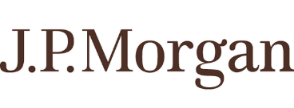
JP Morgan is set to launch a UK digital bank in the second half of 2020 in an attempt to acquire a share of an increasingly crowded market. It will adopt the Chase branding and offer savings and lending products, and it is believed it will provide current accounts and open banking services. It follows Marcus by Goldman Sachs, that launched in the UK 2018 and has over 300,000 customers, although Marcus just offers savings products in the UK.
The bank is planning to cut jobs in Switzerland, and as many as 140 jobs are believed to be made redundant, mainly in the Geneva office and across back office. Although Switzerland remains an important growth market according to the bank, it has taken steps to operate more efficiently and it is currently working on redundancy plans. It will offer its staff jobs in other areas of the company or cut jobs through retirement or attrition, rather than issuing layoffs.

J. Safra Sarasin's posted good results again for 2019. Net profits rose 9.5% to CHF 380.2 million Swiss francs last year, boosted by the release of CHF 316 million in reserves. Its spending rose 2.5% higher to CHF 688.8 million, amid a recruiting drive and the expansion with new offices in Amsterdam and Istanbul, which in turn reflected in a 59.6% cost-income ratio. Assets under management increased 13% to CHF 185.8 billion due to favorable market swings and to CHF 5.6 billion in fresh money brought in by private bankers.
The bank has been substantially growing its international and onshore Swiss offices and has successfully focused on acquiring senior and entrepreneurial private bankers offering access to a highly sophisticated platform together with a simplified, sustainable and business-oriented model, as opposed to the much more layered and slower models of bulge bracket competitors.

Julius Baer announced that it will cut $207 million from its spending bill by 2022, including by cutting hundreds of jobs, and it has shifted its focus from an asset-gathering strategy to sustainable profit growth. Cost-income ratio currently stands at 71%, which the bank wants to reduce to 67%. About 300 jobs will be made redundant (5% of the total workforce), of which up to 200 will be in Switzerland and will include private bankers too. Julius Baer has also decided to close its booking centre in the Bahamas, with 30 jobs to terminate there. At the same time, investment in technology will be accelerated and increased by 20% in 2020 and 2021.
The bank has launched a digital-assets offering for Swiss clients in cooperation with crypto-bank Seba. Seba received a license in August 2019 as one of the first crypto banks in Switzerland. Julius Baer’s clients booked in Switzerland will have access to consolidated overviews across both conventional and digital assets.
Swiss Authority Finma banned Julius Baer Group from making significant acquisitions until it addresses internal money laundering failures. Finma said that the bank’s money laundering controls fell ‘significantly short’ for almost a decade to 2018. This decision was taken after the investigation of the bank’s involvement with Venezuelan state-owned oil company PDVSA as well as world soccer body Fifa revealed systematic failings over AML due diligence and risk management. The bank commented that it is strengthening its processes further and addressing the weaknesses identified by the Swiss Authority.
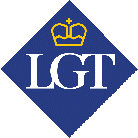
Liechtenstein private bank LGT recorded growth in revenues and assets last year, but profits decreased. Total assets were up 15% in 2019 to CHF 228 billion, helped by a doubling of net money inflows to nearly CHF 14 billion, and revenues were up 8% from the previous year. Full-year profits fell 2% to CHF 308.1 million, impacted by an increase in costs. LGT employee headcount grew by 8% to 3,662 staff, which prompted a 15% increase in spending and a rise in cost-income ratio to 74.1%.
The bank underscored its emphasis on environmentally and socially sustainable investment solutions. It has introduced sustainable equity and bond funds back in 2009, and it launched a sustainability rating for equities, bonds, funds and ETFs in 2017. Over the past year, this was implemented with the offering of portfolio management solutions focused on sustainability to clients in Liechtenstein and Switzerland, and the decision to not engage business with companies that produce coal or generate energy from coal from its investments.

Lombard Odier has seen strong inflows of client assets in 2019 reaching a total of CHF 299 billion (of which CHF 182 billion in private wealth management), up 16% from the previous year. Two thirds of the growth are attributable to market performances, while CHF 14 billion francs were attracted in net new money by bankers. Profits were also up by 6% to CHF 175 million. With one-time items (including the sale of a client book in North America to Vontobel and an extra dividend by stock exchange operator SIX) net income reached CHF 203 million.
The bank kept investing in relationship managers and technology throughout 2019, and it continues with a partnerships strategy to penetrate in new markets. In Mexico, the bank recently partnered with Grupo Financiero Banorte to launch a fund for the local market; and in Switzerland it merged two funds with Credit Suisse.
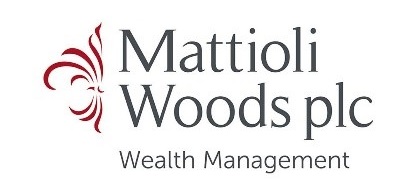
Wealth manager Mattioli Woods is acquiring Hurley Partners, a UK adviser and asset manager founded in 2013 with offices in London, Surrey and Manchester. The firm has approximately £600 million in client assets and offers legacy planning and investment management services, with expertise in the area of member-directed pension schemes. Latest figures indicate the business has been generating revenues of £5.68 million. The deal is worth up to £25.6 million and is expected to complete in the second quarter of the year, with all employees of Hurley Partners expected to remain with the newly combined group. Mattioli Woods holds £9.4 billion of assets.

Morgan Stanley has reached an agreement to buy online discount broker E*Trade for $13 billion in an all-stock deal. E*Trade currently holds 5.2 million client accounts with $360bn of assets, and it will allow Morgan Stanley to compete with retail-focused discount brokerages like Schwab and Fidelity by giving it a greater foothold in the direct-to-consumer and stock plan administration markets, alongside wealth management. The acquisition could send Morgan Stanley into the RIA custody space that E*Trade has recently been trying to penetrate.
According to Vincent Chui, APAC Head of Wealth Management, the bank is planning to expand its wealth management footprint is Asia in 2020 and it plans to hire up to 60 further customer service, risk, and product specialists across its Hong Kong and Singapore offices, half of which would be relationship managers. In Japan, Morgan Stanley and Mitsubishi UFJ Financial Group have expanded on their 12-year relationship by enhancing their wealth management operation in the country and have deepened their alliance in the trust banking business.

Nomura has plans to accelerate its expansion in Asia ex-Japan and is looking to double the number of its relationship managers, currently 57, to increase assets under management five-fold by 2026. The target is to reach $50 billion in assets from the current $10 billion. Just last year, the bank added 10 relationship managers to its headcount between the Hong Kong and Singapore offices and it remains opportunistically open to acquisitions. Nomura recognises that Asia has bigger potential for future growth compared to Japan and the bank plans to leverage on Nomura’s strength from the global markets and investment banking divisions to capture and serve wealthy Asian clients and connect them with opportunities available in Japan.

Old Mutual Wealth, Quilter’s UK Platform, has introduced a new initiative dubbed ‘family linking’, a multiple and improved family member discount that helps clients save money across the generations. While spousal linking is common and already available, the new initiative includes multiple generations including grandparents, parents, parent in law, spouse, brother and sisters, children and grandchildren. The firm uses the combined assets held on the platform to calculate fees which reduces in stages as the total value of assets increases, making it easier to create prosperity across generations.
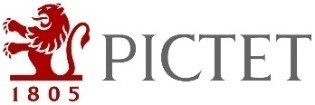
Profits at Pictet dropped by 9.5% last year to CHF 539 million, mainly due to the recruiting of 374 new staff and investments in infrastructure. Under Managing Partner Boris Collardi the bank has been poaching senior bankers from his former employer Julius Baer, as well as hiring experienced talent from other institutions. About CHF 25 billion were won last year in fresh money across all clients in fund management, private banking, and asset services. Revenues decreased by 2% to CHF 2.7 billion

Quilvest, part of the Bemberg family's financial group, is looking to reorganise the presence in Switzerland as a multi-family office for wealthy families and it has detached the unit, Quilvest (Switzerland), from Quilvest Wealth Management. The Swiss branch has historically been the family office of the Bembergs family who made its money mainly in breweries, but it has most recently mutated into a multi-family office. Matthias Jenzer, Quilvest's Swiss CIO, has been appointed CEO and will oversee the Swiss repositioning of the firm.
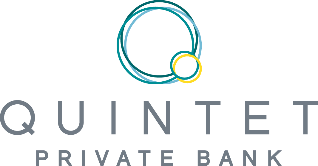
Quintet, formerly KBL European Private Bankers, announced with sadness that Group CEO Juerg Zeltner passed away at the age of 52, highlighting the gratitude of the firm to Juerg for his ‘visionary leadership and invaluable contribution in defining a long-term growth strategy for the firm’. Wealth Management CEO Jakob Stott was named Interim Group CEO and will continue to pursue the strategic plans.
The bank plans to hire 100 relationship managers, building on the existing 300-strong front-line workforce, as well as considering expansion with new offices in Latin America, the Middle East, Asia, and eastern and southern Africa. Quintet has about €70 billion in assets under management and is a collection of seven wealth management firms across Europe (UK, Belgium, Germany, Luxembourg, Spain and the Netherlands).
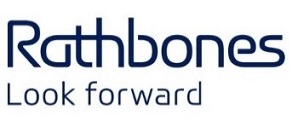
Rathbone Brothers saw a pre-tax profit fall of almost 65% last year from £61.3 million to £39.7 million. The firm said it was mainly due to £26.1 million in deferred staff payouts relating to its 2018 purchase of Scottish wealth manager Speirs & Jeffrey, in addition to an increase in its headcount following the purchase. Other costs included a £3.1 million tech project and £4.1 million in acquisition integration costs. Following the results, Rathbones has decided to cut 58 Speirs & Jeffrey back office staff, but it will continue with targeted recruitment. Revenue for the year grew by 11.6% to £348.1 million with income from Speirs & Jeffrey contributing £17.2 million.

Privately held Genevan private bank Reyl has announced expansion plans for its office in Zurich, which was launched five years ago and currently employs about 20 professionals. The bank has been servicing clients from Switzerland, the U.K., Central and Eastern Europe, Turkey, Israel, Russian-speaking countries, and Asia; and it now plans to expand with a dedicated unit in Zurich for U.S. offshore clients.

Santander’s Wealth Management and Insurance division reported a growth in assets under management at the end of 2019 to €395 billion, up 13% from 2018. This include the asset management, private banking and insurance divisions. Across private banking, the bank reported growth in Brazil, Spain and international private banking, with loans and advances to customers growing by 5%. Although the bank does not specify the private bank’s contribution to assets under management in the annual report, according to Santander’s website the Global Private Banking division has more than $100 billion in assets under management.
Santander officially launched a UK private bank in 2017 which since early 2019 has been headed by Ben Covey. In a recent interview with Citywire, Ben unveiled that the unit focuses on clients with savings of over £500,000 or an annual income of more than £250,000. It currently operates with a team of 45 advisers in the UK (half of which were internal appointments) and it is keen to continue hiring in a ‘sustainable’ and ‘cautious’ way.

Schroders has historically produced 30-year return forecasts across equity and fixed income markets on an annual basis and it has now integrated climate change into its global investment returns forecasts. The firm has developed a three-stage process for quantifying the possible impact of climate on long-term returns. The effort emphasises the focus that Shroders is placing on the implications of global warming.
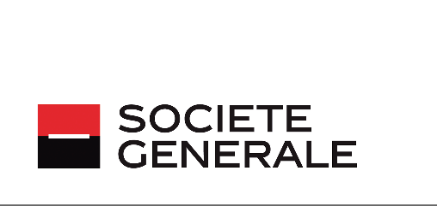
After unsuccessfully trying to sell its UK private banking business Kleinwort Hambros, the French bank has decided to keep the UK business for the time being. It is understood that although there was an initial interest from buyers like EFG International, Julius Baer and J. Safra Sarasin; the UK private bank, which has around £14.2 billion in assets, had an exceptional price tag of £500 million which was deemed overpriced. Furthermore, the acquisition of Kleinwort Hambros would have also carried important restructuring costs. Purchase prices for private banks tend to range from 1% to 2% of assets under management, which would have suggested an opening bid of £150 - £280 million rather than £500 million.

Standard Chartered Private Bank announced that it introduced “ESG Select”, a new review process to be applied on wealth solutions that seek to be positioned as a sustainable or environmental, social and corporate governance (ESG) product on the Standard Chartered platform. It also applies to ESG funds who are currently offered by the bank via wealth management for retail banking clients.
Private banking pre-tax underlying profit stood at $94 million for 2019, bouncing back from a $14 million loss in 2018. Operating income was $577 million, against $516 million in 2018, while cost-income ratio at the private bank was 89.1%. Private banking assets under management rose by $8 billion (14%), of which $2.6 billion were earned in net new money.

UK wealth manager Tilney has been struggling to complete its £625 million takeover of rival firm Smith & Williamson announced in September 2019, as the deal has hit regulatory hurdles and the FCA has not been giving its approval. Tilney announced that the firm is discussing with the FCA to address its concerns and understand what requirements need to be met for a new application. Both Tilney and Smith & Williamson remain committed to the merge as it represents a significant opportunity to create the UK's leading wealth management and professional services business.
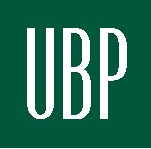
Union Bancaire Privée has been ordered to pay an additional $14 million in fines after U.S. prosecutors found it hadn't entirely come clean on offshore accounts three years ago and failed to disclose all undeclared accounts of Americans. Officials said they found a further 97 accounts linked to the U.S which were undeclared to U.S. officials. This adds to a previous fine of $188 million paid by the bank in 2016 for 3,000 U.S. linked accounts.
Assets under management at the bank rose by 10.6% (CHF 13.5 billion) in 2019 to a total of CHF 140.3 billion, of which CHF 4.5 billion attributed to net new money from private and institutional clients. Net earnings stood at CHF 187.8 million, compared with CHF 202.4 million in 2018; while revenues slightly increased (+0.6%) to CHF 1.07 billion. The cost-income ratio was 67.9%, compared with 65.8% in 2018.

UBS Group AG missed profit, cost efficiency and dividend growth targets for 2019 and the private bank unexpectedly saw $4.7 billion of outflows last quarter, attributed to low margin. New Co-President of Global Wealth Management Iqbal Khan was recently brought in to revive the unit and grow it by 10% to 15%. Khan has been cutting jobs, speeding up decision making and giving more autonomy to the regions. Cost-to-income ratio stood at 78.9% in 2019, missing the 77% target.
The wealth management unit in the Americas lost 300 financial advisors in 2019; while the global advisor ranks moved from 10,677 at the end of 2018 down to 10,077 advisors worldwide in 2019. Invested assets in the Americas rose to $1.4 trillion at the end of the year, up from $1.2 trillion the previous year, while global invested assets reached $2.6 trillion at the end of 2019 (up 17%). Global client assets reached $2.9 trillion at the end of 2019 (up 15%).
UBS is planning to start a new effort in Miami to target Latin American intermediaries that book assets in the U.S, driven by Head of FIM International Mariana Gregori. The team is starting with six initial employees and it targets boutique firms that don’t have the capabilities of a large private bank, although it will not target the domestic U.S. market for now.

US fund manager Vanguard, an aggressive competitor in the UK’s fund management industry, received the green light from the FCA to enter the investment advice industry in the UK, with regulatory permission to begin providing retail investment advice. The firm stated that the plans to enter the space are at an early stage and that no timeline has yet been finalised.

Zurich based bank Vontobel has announced plans to expand services for financial intermediaries in Germany and Asia, such as external asset managers, banks, securities dealers, and multi-family offices, as well as implementing the offering in its home market of Switzerland. Particularly, the bank highlighted a strong interest in growing the EAM business in Singapore, where it was granted a new licence last year to service this client segment.
At group level, Vontobel reported a 17% growth in assets under management to CHF 226.1 billion, including net new money totalling CHF 11.7 billion for the year (+6.9%). Asset management was the strongest contributor. The private bank registered net new money of CHF 500 million last year, a similar growth to 2018, and pre-tax profit grew by 21% to CHF 147.4 million.
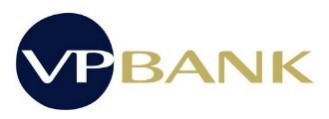
VP Bank has outlined a 2025 strategy that is set to begin in 2021 and will be building on the four strategic business units of Retail & Commercial Banking, Wealthy Individuals, Intermediaries and Client Solutions. The strategy will see intermediaries and private banking as the focus of the growth and it also aims to establish and develop new business opportunities across sustainability, asset digitisation, private market solutions among others.
The bank has recorded a 34.4% increase in net earnings in 2019, generating group net income of CHF 73.5 million. Group assets under management rose 14.7% to CHF 47.6 billion, of which CHF 2.3 billion in net new money. Cost-income ratio declined to 67.6% from 75.8% in 2018.




